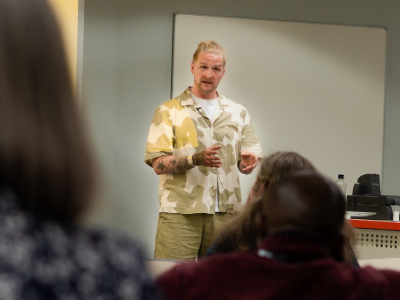Latest news
Doctorate milestone shared by twin scholars

Hassan and Hussein Doma are celebrating their shared graduation day after completing the same postgraduate degree.
10 Jul 2025

Kerri set to continue her academic journey at Teesside University
Kerri Coyne is continuing her academic journey at Teesside University after returning to education to switch career direction.
10 Jul 2025

Academic award celebrates memory of Teesside University lecturer
Law graduate Rajveer Kaur is the first recipient of the Emma Teare Award for Family Law.
9 Jul 2025

Graduate dreams of opening a Moroccan restaurant
A passionate graduate who worked in the catering team at Teesside University throughout his studies plans to become a restaurateur.
8 Jul 2025

Teesside University raising aspirations for young people in care
Carers, professionals, educators and advocates dedicated to supporting care-experienced young people came together at the annual conference delivered by Teesside University.
3 Jul 2025
Other news
- Teesside University awards Honorary Doctorates to industry leaders
- Alumni support elite football event
- Girls explore digital careers at state-of-the-art new Teesside University facility
- Teesside University start-ups Selected for prestigious Tranzfuser 2025 programme
- Teesside University to create ‘green corridor’ in the North East
 Doctorate milestone shared by twin scholars
Doctorate milestone shared by twin scholars Kerri set to continue her academic journey at Teesside
...
Kerri set to continue her academic journey at Teesside
... Academic award celebrates memory of Teesside University
...
Academic award celebrates memory of Teesside University
...